Second Houthi missile attack targets Israel in two days
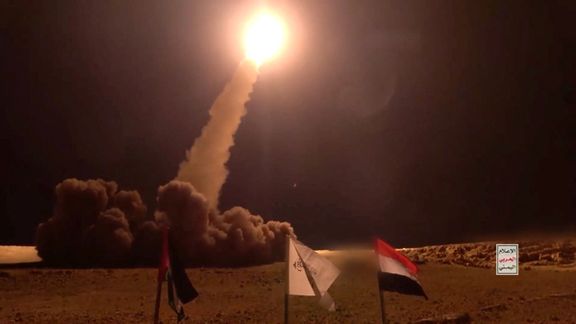
A missile launched by Yemen’s Iran-aligned Houthi group struck a public park in southern Tel Aviv overnight Friday after Israeli air defenses failed to intercept it.

A missile launched by Yemen’s Iran-aligned Houthi group struck a public park in southern Tel Aviv overnight Friday after Israeli air defenses failed to intercept it.
The impact of the ballistic missile caused sirens to sound across central Israel at 3:44 a.m., sending millions of residents rushing to shelters. This was the second such attack on Tel Aviv since Thursday.
The explosion injured 16 people, mostly with minor injuries from shattered glass, including a three-year-old girl. Another 14 individuals sustained bruises while rushing to shelter. Footage from the site revealed a crater in the park caused by the missile.
The Israeli military confirmed that the missile originated in Yemen, acknowledging that attempted interceptions were unsuccessful. It was the second such incident within days. On Thursday, a Houthi missile partially intercepted outside Israeli airspace crashed into an empty school building in Ramat Gan, causing significant damage but no injuries. Earlier that week, another missile triggered alarms across the country.
The Houthis claimed responsibility for the attack, stating that they had targeted a "military site" in the Jaffa area in solidarity with Palestinians in Gaza. Israeli police also reported receiving alerts of a fallen missile in the Tel Aviv-Jaffa region.
Israel blamed Iran on Thursday and launched waves of fighter bombers to hit Houthi military and economic targets.
This latest strike follows Israeli airstrikes on Thursday targeting ports and energy infrastructure in Houthi-controlled Yemen. The Israeli military has warned of further attacks on the group, which has increasingly launched missiles and drones toward Israel amid the ongoing Gaza conflict.
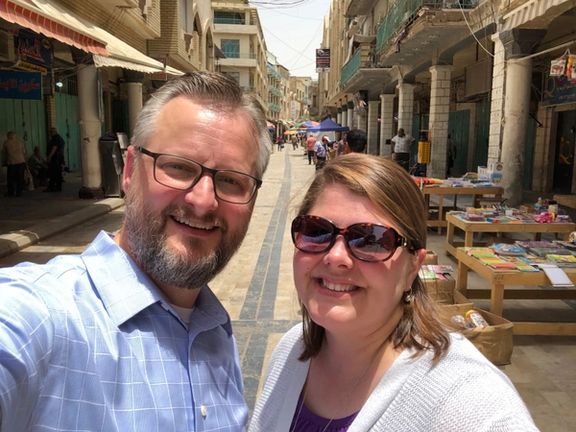
The US Justice Department on Friday charged a captain in Iran's Islamic Revolutionary Guard Corps (IRGC) with killing an American in the Iraqi capital Baghdad in 2022.
The murder and terrorism offenses against Mohammad Reza Nouri, 36, relate to the shooting death of Stephen Troell, 45, who worked at an English language institute in Iraq.
Troell was gunned down in Baghdad on Nov. 7 2022 while driving and accompanied by his wife. His last post on X was a selfie of the couple in Baghdad published June 11, 2018. "How much we loved visiting Baghdad!!! Iraq's treasure is its people," he wrote.
The complaint unsealed in a Manhattan federal court alleged the murder was Iran's retaliation for the killing of top IRGC commander Qassem Soleimani in a US drone strike in Baghdad in 2020.
"The Department of Justice will not tolerate terrorists and authoritarian regimes targeting and murdering Americans anywhere in the world," said Attorney General Merrick Garland in a statement.
"Stephen should still be alive today, and the Justice Department will work relentlessly to ensure accountability for his murder." he added.
Nouri is serving a life sentence in Iraq along with four Iraqis after being convicted there of Troell's murder. He had a played a key role in the targeting and killing of Troell, the complaint reads, including gathering information on Troell and his family.
Nouri is also alleged to have helped procure firearms and a vehicle for the operation. He believed Troell was an American or Israeli intelligence officer, according to the criminal complaint.
Minutes after the attack, he sent an encrypted message to another man involved. "The guys are fine?" he allegedly wrote.
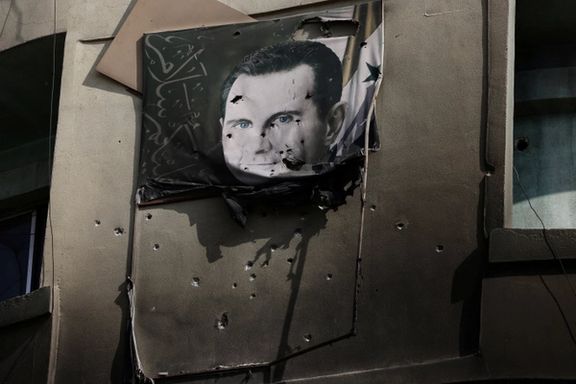
Iranian officials have been offering conflicting rationales for Iran's hasty exit from Syria as establishment voices begin to come to terms with one of the Islamic Republic's biggest ever strategic setbacks.
Defenders of official policy even went as far as slamming Iran's top great power ally Vladimir Putin for saying 4,000 Iranian troops needed a Russian airlift to depart.
"Liar," government-controlled media Nameh News branded the Russian President.
A senior military figure protested that those airlifted to Tehran were not Iranian or were not military personnel. Still others have defended Iran's support for and defense of Assad and at least one has denied Iran's military presence in Assad's Syria altogether.
Ali Akbar Ahmadian the Secretary of the Islamic Republic's Supreme Council of National Security insisted that Iranian troops were present only as military advisers.
The statement is contrary to copious Iranian state TV footage in the past that showed Iranian IRGC forces engaged in combat in Syria.
"Iran's military presence outside the country is based on Tehran's national interests, non-intervention in the internal affairs of the host countries," Ahmadian added. "Iran never starts an invasion."
Iranian and Russia forces participated in large-scale assaults and air strikes against population centers, including Syria’s second largest city, Aleppo during the civil war.
The conflict involved government forces opposed by religious and secular opposition fighters. Assad was ultimately toppled by a rebel coalition spearheaded by a radical Islamist group that was once an Al Qaeda affiliate.
Ahmadian made a rare concession about the true nature of Iran's erstwhile ally, however.
"Part of Assad's political system showed a detestable behavior against the people of that country and that brought about a divide between the Syrian government and people."
Ebrahim Rezaei the spokesperson for the Iranian parliament's National Security Committee told the press that "Assad's regime would have fallen much earlier if it were not for our resistance."
"Iran's presence in Syria was aimed at protecting the axis of resistance rather than Assad as an individual," he added."We fought terrorists such as ISIS and some of our men were killed in action in Syria."
Islamic Revolutionary Guard Corps (IRGC) General Esmail Kowsari, a member of the Iranian parliament's National Security Committee said Tehran did not station so many troops in Syria to have needed a massive Russian airlift.
"Iran never had 4,000 troops in Syria. Those who were evacuated were Lebanese and Afghan military advisers as well as individuals from some other countries."
Iran organized Afghan, Pakistani and Iraqi militiamen to fight alongside Assads forces for a decade.
The Afghan fighters receive citizenship or residency in Iran and were buried there with honors when they were killed in Syria.
"The reason we did not evacuate them earlier was that we expected the Syrian army to show some resistance. But neither the army nor Bashar Assad did so," Kowsari added. "We even told Iranian teachers in Syria to return to Iran via Lebanon."
Iran's clerical establishment also sought to blame Assad's forces.
Hashem Hosseini Bushehri the Friday Prayers Imam of Qom and a member of the Assembly of Experts also said in one of his sermons: "Neither Bashar nor the Syrian army had any motivation to fight, and Iran was not able to do anything under the circumstances as Syria's ground and air borders were closed."
Iran had warned Assad, he said, that fighters were being trained in Idlib but Tehran's counsels fell on deaf ears.

Iran’s influence in the region has been significantly diminished by its ally President Bashar al-Assad's fall, Syria's de facto new leader Ahmed al-Sharaa said in an interview with Asharq Al-Awsat.
Sharaa, whose radical Sunni Islamist group Hayat al-Tahrir Sham (HTS) swiftly defeated Assad's forces this month said Syria's opposition had “set the Iranian project in the region back by 40 years,” signaling a major shift in Syria’s stance toward Iran.
“By removing Iranian militias and closing Syria to Iranian influence, we’ve served the region’s interests—achieving what diplomacy and external pressure could not, with minimal losses.”
Sharaa's remarks to the Saudi-owned outlet appeared aimed at placating Arab nations and rejected any notion of Syria becoming a threat to its neighbors.
“We are now focused on state-building. Syria will not be a platform to threaten or unsettle any Arab or Gulf country,” he said.“The Syrian revolution ended with the regime's fall, and we will not allow it to spread elsewhere.”
The Assad dynasty was a key Arab ally of Tehran, which had been backing its fight against HTS and other rebel groups for over a decade.
He stressed that Syria will no longer serve as a base for actions that destabilize neighboring Arab or Gulf countries, indirectly criticizing Tehran’s past involvement. He pointed to how Syria had previously been used as a platform for Iran to exert control over key Arab capitals, fuel conflicts, and destabilize the Gulf region through activities such as the trafficking of drugs like Captagon.
Iran's Islamic government has been rattled by events in Syria, where it helped keep Assad in power since anti-government protests erupted in 2011. Its exit from Syria followed defeats its other ally, Hezbollah, suffered in Lebanon.
Criticism of Iran’s Influence
Al-Sharaa criticized Assad's reliance on Iran, accusing it of undermining Arab unity. He revealed that during a meeting with Jordanian officials, the ousted Syrian government was asked why it continued exporting Captagon to Jordan.
“The response was that it would not stop unless sanctions were lifted,” Al-Sharaa said, describing such policies as damaging and counterproductive.
According to some former Iranian officials, Tehran spent around $50 billion in Syria in the past decade, where it maintained a large military presence.
Rebuilding Relations with Arab Neighbors
Al-Sharaa highlighted Syria's goal of rebuilding and strengthening relations with Arab nations based on mutual respect and non-interference.
He pointed to the Gulf's advancements, particularly Saudi Arabia's Vision 2030, as a development model Syria aims to emulate. Addressing concerns about Lebanon, he stressed Syria's commitment to balanced relations without interference in Lebanon's internal affairs, focusing instead on addressing its own domestic challenges.
Al-Sharaa emphasized the need for inclusivity in shaping Syria’s future, recognizing the diversity of opinions within the country and describing it as a natural and constructive element of society.
He highlighted his commitment to fostering national unity through adherence to the rule of law. Reflecting on the significance of holding the interview at the Presidential Palace, a site previously occupied by Assad, Al-Sharaa noted that it should be a space accessible to the people, symbolizing openness and a connection to the broader community.
The new administration’s approach, Al-Sharaa concluded, is centered on restoring Syria as a trusted member of the Arab world, free from external agendas.

"I can’t remember the last time I was so shaken as I was watching images of Assad’s prisons," says Fatemeh, who has seen the inside of Iran’s prisons for her activism. “My country funded these crimes. Syrians have every right to hate us."
Her anguish mirrors the conflicted emotions of many Iranians following the events in Syria. For decades, their government funneled financial and military support to prop up Bashar al-Assad and his police state. And yet the much-feared dictatorship unraveled in less than ten days.
Fatemeh is 36. She’s been jailed twice in the past five years, each time for a few months. Like many other Iranians struggling with economic hardship, she doesn’t approve of giving money to the so-called Axis of Resistance in general. But to see with her own eyes the horrors that money bought repulsed her.
“I’ve seen countless images of Nazi death camps and other dictators’ prisons, but those feel like history. These are live broadcasts from the depths of hell,” Fatemeh says pointing at her laptop.
The fall of Assad has sparked hope for many Iranians that the Islamic Republic could be next. The events of the last few months, including the battering of Hamas and Hezbollah by Israel, has punctured the high-flying rhetoric of Iran’s supreme leader Ali Khamenei. His air of invincibility is gone, the posturing notwithstanding.
"I’ve been arguing for a while that the Islamic Republic cannot be toppled because it’s cruel enough to jail and kill as many as it takes to survive," said Bahador, 40.
"My reference point was always Assad and his survival. But he’s gone now. And I can’t help thinking ‘what if’?”
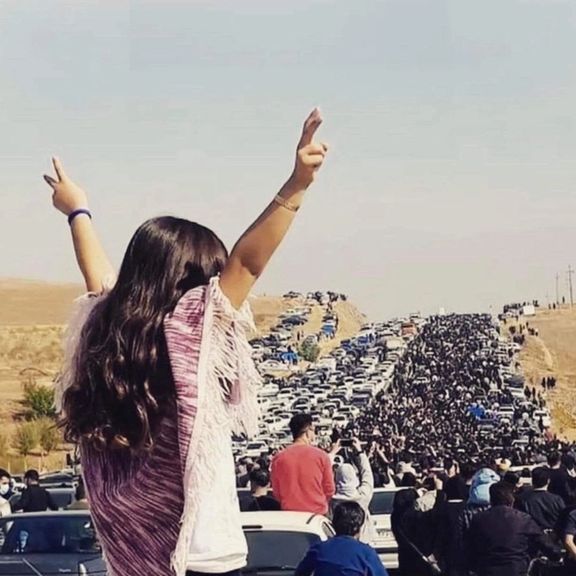
Bahador owns a small company and—in relative terms—is well off. He says his friends call him Glum after the character in the cartoon Gulliver’s Travels who famously said "it’s hopeless" and "it will never work."
“I stopped hoping after the 2022 protests were crushed,” Bahador explains, “but the ecstasy you see in Syria these days is contagious. It’s hard not to dream again.”
He qualifies his optimism immediately, of course, noting the possibility that radical Islamists could take over Syria. He says he cannot help his fear of disappointment, which compels him to hedge his best hopes.
Still, you can tell that he is, indeed, hopeful. And he’s not alone.
"Since the first videos from Syria’s prisons surfaced, I can’t stop imagining that moment when the prison doors open and people walk free.” This is Mehdi, a sales assistant in an insurance company, who unlike Bahador dares to speak his dreams.
“I picture myself in their place—that moment of unconditional freedom, shared with everyone else, leaving no one behind. I really hope we get to see this. But I can’t stop thinking about the thousands that have been killed or gone missing under this system.”
The events in Syria have rekindled hope, but also shocked many. While the brutality of Assad’s regime was no secret, the full extent of its machinery of repression, especially in Sednaya prison, is beyond imagination.
And it has raised uncomfortable questions about prisons in Iran.
Many fear that similar horrors might exist here in Tehran or other cities, hidden from public view. The Islamic Republic is quite brazen about its actions. It openly executes and convicts dissidents, often in breach of its own laws and processes.
Still, Syria’s revelations have troubled many activists that the brutality we see may only be part of the story.
Past nightmares aside, the Syrian experience is closely watched in Iran for hints of what the future may hold.
Debates rage on social media. Some warn that Syria’s revolution could end like Iran’s, leading to new forms of oppression. Others argue that the Syrians are miles ahead already, managing a peaceful transition, not rushing to execute former officials as Iran’s revolutionaries did in 1979.
Arash, a 29-year old crypto-trader, captures the irony of shifting narratives.
"For years we were warned that Iran could become another Syria. Now we should warn Syrians not to become another Iran. You don’t know whether to laugh or cry,” Arash says, shaking his head.
“Every time we protested, they’d flaunt so-called security: ’appreciate that you’re safe in this country,’ they said. And we all know how fragile that security is.”
He’s referring to the Israeli airstrikes and other operations inside Iran.
For now, fears of a war with Israel have eased among Iranians. The saber-rattling has somewhat faded with Assad’s fall. In its stead, we see gentle moves to build a functioning relationship with Syria’s new rulers.
The will of the Syrian people will be respected, Iran’s foreign ministry said in a statement. The irony!
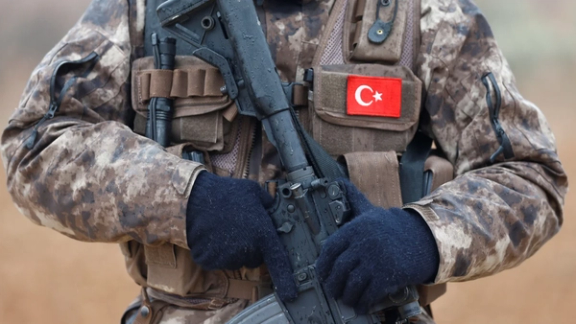
The sudden downfall of Syria's Bashar Al-Assad has put his main backer Iran on the backfoot while giving Turkey the upper hand in a transformed Middle East.
But propping up a friendly government in battered Syria where Tehran failed will be a serious challenge for Ankara, which must also navigate the competing agendas of other heavyweights in the region.
"Turkey is many ways is a real winner here, but time will tell, and if Erdogan overplays his hand, he could mess things up because Israel and the United States won't let it happen," said Henri J. Barkey, a scholar of the Middle East at the US Council on Foreign Relations.
Turkey's President Recep Tayyip Erdogan, a Sunni Islamist, had long supported the armed rebellion against ousted the Iran-backed Syrian dictator Assad, even as the United States and Israel had largely acquiesced to his presence.
Hardline Sunni Islamist rebels capitalized on Shi'ite Islamic Republic's vulnerability in the region after 14 months of withering combat with Israel to wrest Damascus from Assad, whose losing fight against them Iran and its armed allies supported.
"There are complicated days ahead ... for the Syrians in their relationship with Turkey," said Patrick Clawson, a researcher at The Washington Institute.
"The Turks don't have the money to pay for what Syria needs. The Iranians weren't paying a whole lot, just barely keeping outside the line. That's one of the reasons why its forces fell apart".
The reaction of Washington, de facto leader of the NATO alliance in which Turkey has often been a rogue member for its independent stances, will be crucial.
US President-elect Donald Trump said on Monday that Turkey is the ultimate decider of what happens next in Syria, but spoke in harsh terms about its sudden rise there.
"Turkey did an unfriendly takeover without a lot of lives being lost," Trump told a press conference at his Florida residence in Mar-a-Lago.
"Right now, Syria has a lot of, you know, there's a lot of indefinites ... I think Turkey is going to hold the key to Syria,” he added.
“I think this must have come as a big surprise to the Turks because they were expecting that relations with the United States would improve with Trump winning the election, especially because Trump was known to have great admiration for Erdogan," Barkey of the Council on Foreign Relations said.
The Islamic Republic too appears to be casting a skeptical eye on Turkey's role.
Iran’s Supreme Leader Ayatollah Ali Khamenei accused the United States, Israel, and another unnamed country of plotting to overthrow Assad in a speech to his followers last week.
Khamenei was clearly referring to Turkey but dared not criticize it by name because Iran is no position to respond, said Karman Matin, an associate Professor of International Relations at Sussex University in the UK.
“We see a sense of desperation and impotence. The Khamenei speech, I think, was very telling, especially if you put it next to the previous speeches and you see the sense of what he wanted to have but couldn’t,” Matin told Iran International.
After Iran lost its grip in the region after punishing blows by Israel eliminating the top leadership, fighters and weapons stores of Tehran's militant allies, the Islamic Republic must now focus on another grim development: the return of Trump.
Matin described the mood among Iranian hardliners as a growing sense of desperation and feeling of betrayal by its Muslim neighbour in Ankara.
Ahmad Khatami, a senior hardline Iranian cleric, blamed Turkey for Assad’s demise and warned Erdogan that he will face consequences.
“Erdogan will pay the price for this betrayal against Muslims—one day, they [Muslims] will come for him,” said Khatami, a member of Iran's Assembly of Experts and Tehran Friday prayers leader said Tuesday.
While these hardliners also want revenge against Israel for its continued campaign to destabilize the Islamic Republic and its proxies, the Jewish state is also on edge with what will come of Syria’s future governance.
The fall of Assad and the Iranian sphere of influence in Syria is good news for Israel, but Matin described it as bittersweet.
“Israel's concern is probably more about Turkish expansionism now through Sunni rulers of Syria,” said Matin, "Turkey is now an issue for Israel."
As the new leaders in Syria solidify their rule, Matin argues that they won't be in a position to challenge Israel yet.
The ousting of Assad has created an opening for Turkey to now assert itself as a primary external factor, replacing Russia and Iran.
Hakan Fidan, the Turkish foreign minister, told Saudi al-Hadath TV on Sunday that Iran must better understand its actions following Assad’s downfall
“We don’t want Iranian domination, Turkish domination or Arab domination. It’s time for us to come together and establish our own interests, our own order in the region, shoulder to shoulder,” said Fidan.
Turkish spy chief Ibrahim Kalin was reportedly in Damascus last week for a meeting with rebel leaders and prayed in the city’s Umayyad Mosque which dates back to the dawn of Islam, according to Turkish media.
During the height of the Syrian civil war a decade ago, Erdogan took aim at Assad’s attacks on civilians, vowing to one day pray in the courtyard of that mosque.
He may soon be able to honor that pledge.